I can tell I’ll be browsing the pages of Australian Rationalist in my spare time. The latest issue is of some interest to me — the cover story is a rational look at Steiner (or Waldorf) schools. My sons went to a Steiner school, and Youngest Boy still does. While I can’t speak for Steiner (or Waldorf) schools everywhere, I find my local Steindorf school to be dangerous in theory, but harmless in practice.
To the article (PDF). What did they get right?
Rudolf Steiner was a fruitcake. But a renaissance fruitcake. As a boy, he thought he was clairvoyant. As an adult, he promulgated his philosophy of ‘Anthroposophy’, and investigated what he called ‘spiritual science’ — an oxymoron. He invented biodynamic farming, sort of a mix of homeopathy, astrology, and organic farming. His followers today think he is the reincarnation of Aristotle. He believed in gnomes.
And because he was concerned about the development of children, he began what is known today as Waldorf education. But it isn’t based on anything empirical. It’s just whatever Steiner thought. From the article:
The whole basis of Steiner education… comes from Steiner’s excursions into what he called ‘spiritual’ or ‘occult science’, which was code for him going into a meditative state, free-associating around a topic, and writing down the results of his ruminations as though they were incontrovertible truth.
This is the essence of cultism — a group where the leader claims special knowledge, and adherents accept his or her teachings as indisputably true, whether the evidence supports them or not.
Using this method he came up with a number of amazing break-throughs in modern thought, such as the importance of burying stag bladders full of yarrow flowers in a field to stimulate the growth of crops!
Yes, it really does get that bad. The local Steiner school is full of this stuff. Homeopaths and crystal-wavers ply their wares at the Open Day. If a kid bangs his or her head in the playground, parents are quick to proffer Bach flower essences. Parents are also enlisted for ‘stirrings’: they use their hands to slosh around water mixed with tiny amounts of manure that has been buried in a cow horn at the Autumn Equinox, which is supposed to be good for crops. I’m not kidding. The Steiner hardcores don’t even seem to want an empirical basis for their beliefs.
And the fruitcakery carries over into the education. Steiner kids aren’t taught to read until age seven — that’s when, according to Steiner, a child acquires its etheric body — again, no evidence for this is provided; Steiner said it, and acolytes believe it. One parent in Australia was told his child would be held back for an unusual reason.
“She thought his soul wasn’t fully incarnated yet, which was strange thing for me to hear at a parent-teacher interview,” he said.
“And then she pulled out some drawings that he’d done which showed him, I guess, looking down, like a plan view of what he was drawing.
“And she used this as evidence that his soul was hovering over the earth and looking down on the earth and so, therefore, she felt that he wasn’t quite ready to move into the following year.”
The point of all this is that if your philosophy of teaching is empirically based, at least you have a pretty good shot of getting it right. If you’re going by what the Guru said, your odds of getting it right will be no better than random chance.
There is clearly no evidential or experiential evidence for such ideas, nor for the many other gratuitous absurdities that riddle Steiner education, so any resemblance between Steiner education and good educational practice is purely coincidental. That a number of children have survived it, and some even thrived, says more about the resilience of the human spirit than about the efficacy of this empirically groundless theory.
Steiner school promote religion in a way that is incompatible with state-funded secular education. This is the one that secular folks should be getting irked about. Steiner schools work as a separate alternative schools. I pay a lot in school fees to make up for the lack of public funding in the local school, and that’s the way I think it ought to be. Anthroposophy may not be a religion, but it is based on esoteric mystic Christianity, and blending it into the state system poses an unacceptable risk of promoting religious beliefs.
Steiner education may not look ‘religious’ on the surface, but it is in fact a bundle of religious ideas dressed up as educational ones. This is what is insidious about it and this is why it has no place in the secular public system.
With all this in mind, I’d say the article somewhat overstates the hazards of Steiner education, especially in raising the specter of German fascism. As a Steiner dad, I haven’t caught any hints of this at all. The tone at the school is warm and fuzzy.
If there is a saving grace for Waldorf education, it’s that, in my experience, very few of the rank and file parents believe the hype. You do get a core of Steiner believers, including the teachers, but almost no one else takes Anthroposophy seriously. Many parents roll their eyes at Eurythmy and such. The kids are usually pretty down to earth about it, too. At a recent Winter Festival, some parents were trying to foster a reverent attitude during the bonfire, but the kids were chanting “More kerosene! More kerosene!” They keep it real.
I also think that the teaching of religion is handled well, as I’ve mentioned before. Many world religions are represented, and I think this has an inoculating influence on kids. They’re more likely to fall for religion in adulthood if it hasn’t been presented to them before, and the Christian myth is presented at school along with all the other myths.
If you’re a rationalist, and you’re considering Steiner education, or if (like me) you’re already in and you’re only just becoming more of a critical thinker, it’s not impossible for it to work. My kids enjoy their school, and it’s been pretty positive. But here are some suggestions.
- It should be used only for younger children. I know perfectly intelligent and capable people who have gone all the way through a Waldorf high school, but I feel bad for anyone who’s been under the influence of Steiner believers for so long. Anyone who believes in gnomes and Atlantis has absolutely no business teaching science at a high school level.
- You must talk to your children about what they’re learning. That way, you can help to moderate any strange ideas they encounter, like fairies. It can even be a good critical-thinking exercise.
- Watch out for areas where they may be falling behind. Steiner kids start reading late, and some may have trouble. For Oldest Boy, some math problems went unnoticed late. This may be because of the absence of testing. Steiner teachers hate standardised tests, even to the point of encouraging parents to opt out of state-mandated tests. (Wonder why.) Give your kids the tests, and monitor the results for areas where they may be falling behind. Help them in a low-pressure way to grasp the concepts they’re going to need when they get to high school. A simple math workbook or reading together can be all it takes. You may be doing those things anyway.
The greatest danger from Steiner schooling is to the rationalist parent, not the child; you may go insane from exposure to crackpottery, or you may eventually bite through your tongue.
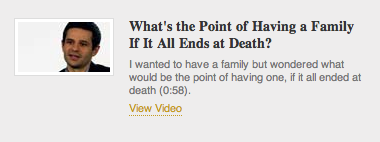

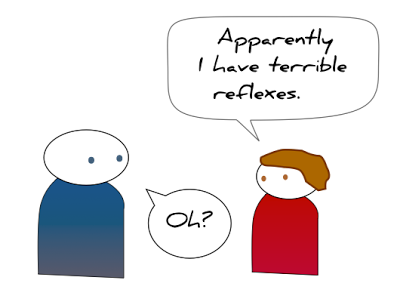

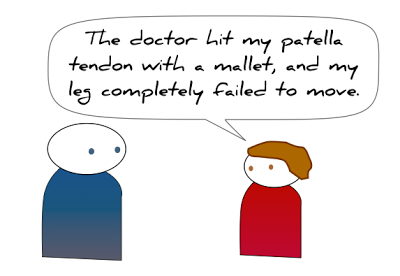
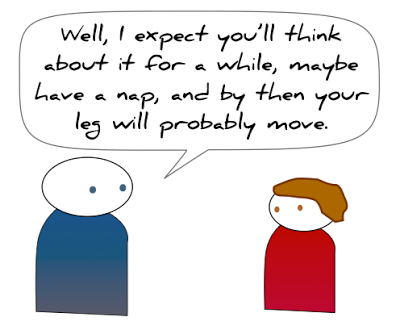
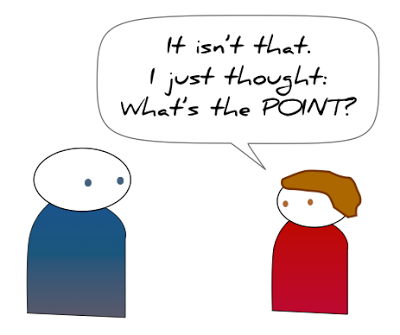
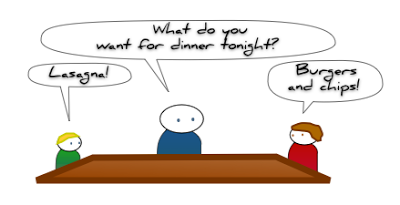

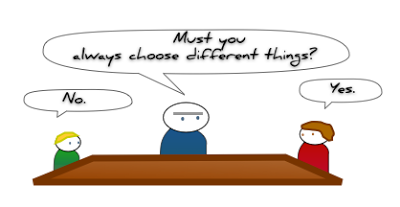
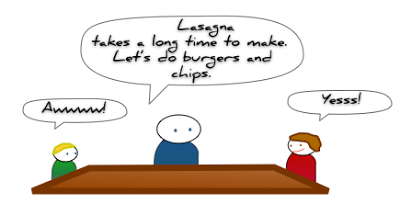
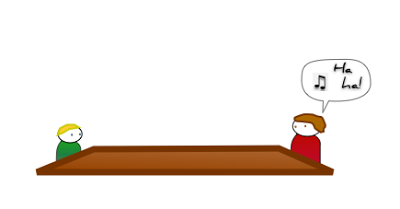
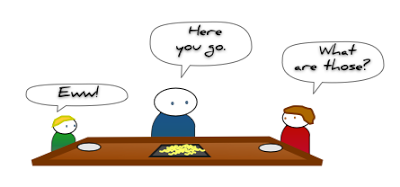
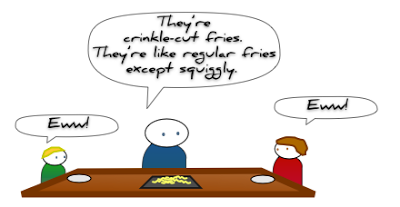
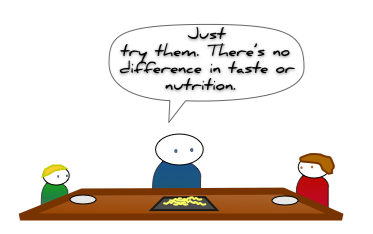
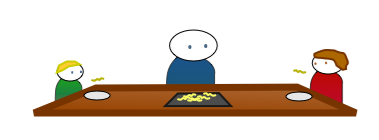
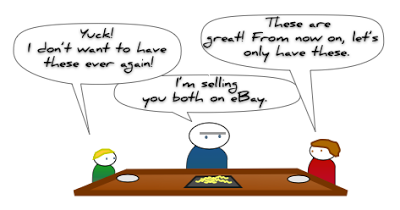
Recent Comments